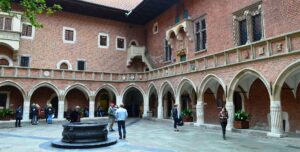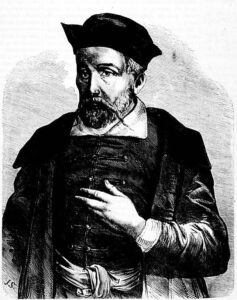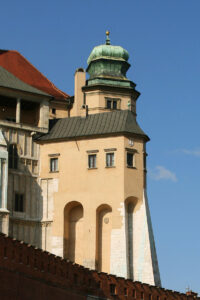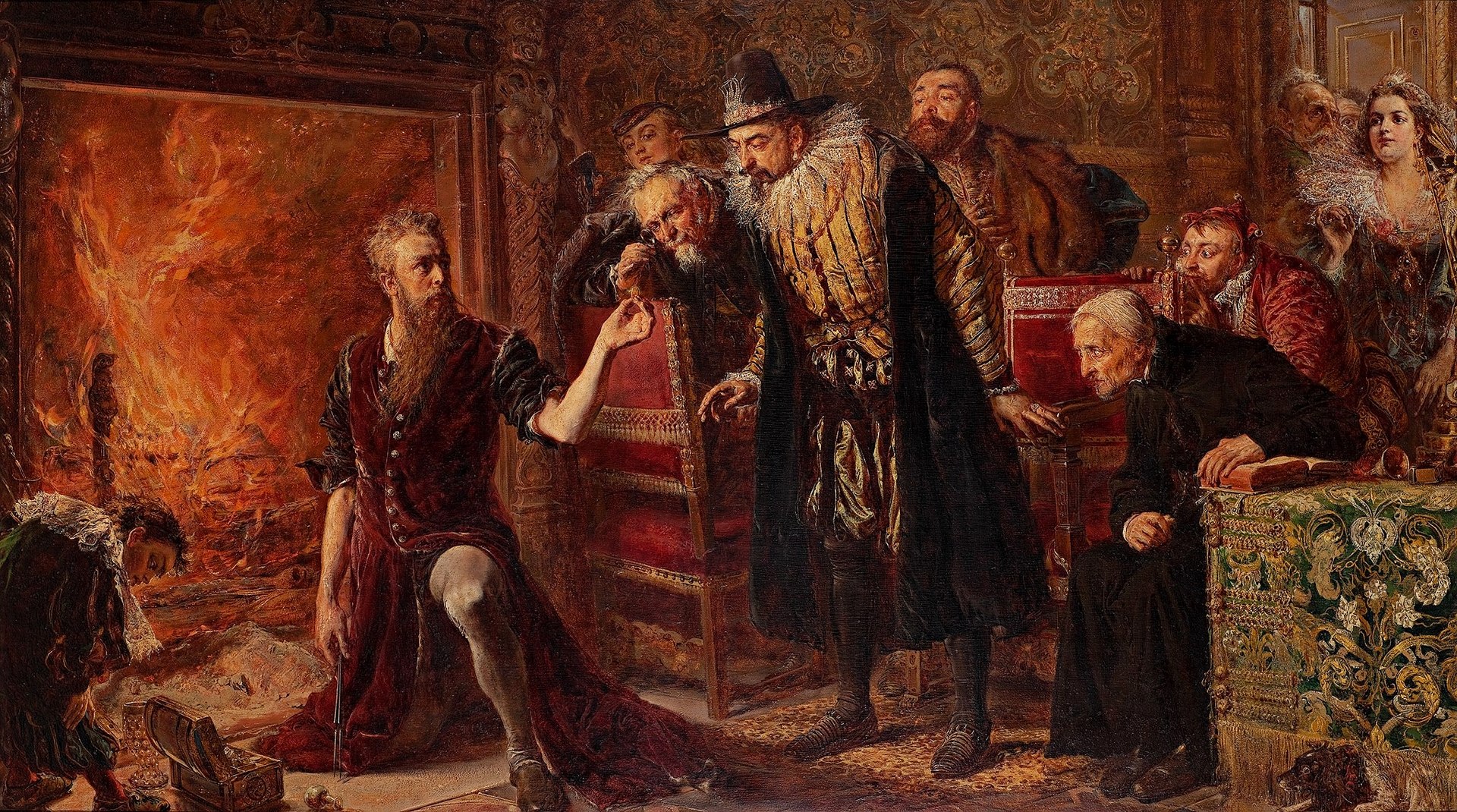An alchemist known all over Europe, he was diligent in his research and performed many complex physical and chemical experiments. In his writings he often described the life-giving “philosophical salt” hidden in the air, which is why he is considered one of the discoverers of oxygen and thus a pioneer of modern chemistry.
by Piotr Bejrowski
Michał Sędziwój (Michael Sendivogius) was born in 1566. He studied at the Krakow Academy, where he first encountered alchemy and the ideas of Paracelsus, considered the father of modern medicine. During this time, he was influenced by the English alchemists at the court of King Stefan Batory, John Dee and Edward Kelley. Then, thanks to the support of the future Grand Marshal of the Crown, Mikołaj Wolski, he continued his education at universities in Cambridge, Leipzig, Frankfurt, Wittenberg and Vienna, among others. He traveled a lot, visiting places such as Moscow, Sweden, Spain, Portugal and Switzerland.

His experience and knowledge resulted in him being entrusted with important diplomatic functions by King Sigismund III Vasa. He was an envoy between the Polish-Lithuanian Commonwealth and the Empire, and in documents he appeared both as the Imperial Counselor and the Royal Secretary. Diplomatic missions did not weaken Sędziwój’s interest in alchemy and in the search for the philosopher’s stone, which supposedly would transform base metals into gold. A special show organized for the emperor was reportedly a success. Rudolf II commemorated this event by embedding a plaque with the Latin inscription: “Let anyone else do what the Pole, Sędziwój, did.” in the wall of the room in which the transfiguration took place
The alleged changes were said to be possible thanks to a mysterious powder donated by the Scottish alchemist Alexander Sethon, whom the Polish scientist had first freed from captivity in Saxony, then brought to the Polish-Lithuanian Commonwealth, and finally, after his death, married his wife and thus inherited his property.
Another thing is that the “career” of an alchemist in modern Europe, apart from the hunt for a powerful patron and dazzling successes, also included ill-treatment and the risk of imprisonment by rivals or rulers impatient with a lack of success. As a result of a conspiracy in 1605, he was imprisoned by Prince Frederick I of Wirtembers. Sędziwój was finally freed thanks to decisive intervention of his patrons, Sigismund III Vasa and Rudolf II. He also maintained good relations with the next emperor, Ferdinand II Habsburg. He was an imperial councilor, and at the end of his life he also received large land grants in the Kingdom of Bohemia, where he died at the age of seventy.

Although he created his most important works in Prague and spent a significant part of his life outside his homeland, he undoubtedly felt that he was a Pole. His magnum opus, entitled The New Chemical Light (Novum Lumen Chymicum), was published anonymously in 1604. The author signed them with an anagram made up of letters of his name and surname: “I love the lineage of the divine Lech”, referring to “Lech”, the legendary ancestor of Poles.
Michał Sędziwój’s treatises, due to the proposed new research, aroused great interest in all of Europe. Copies of his works found their way to the bookcase of Isaac Newton, among others. The Polish scientist’s merit was the approach to the definition of concepts absent in classical alchemy, and the constitute of the foundation of modern chemistry – including “element” and “gas”. Sędziwój did not know or create such terms, but he described the “philosophical salt” present in the air, in his opinion, which was to be a hidden “food of life”. His hypothesis, based on the analysis of respiration and combustion, contributed to the development of laboratory experiments and the understanding of many chemical processes.
Sędziwój mentioned oxygen many times without mentioning its name. In the Treatise on the Philosopher’s Stone, he wrote: “Man is created from the earth, but he lives from the air. For in the air there is hidden the food of life, which we call the dew of night and the diluted water of the day, whose invisible, solidified spirit is better than all the earth”. He also claimed that air can permeate every body and that it is “the most worthy and true habitat of the seed of all things”, because it contains “the life spirit of all beings, which lives in them, permeates them, nourishes, saturates and preserves them.” In his opinion, “the entire structure of the world is preserved thanks to the air”, because without it, man would die, nothing would grow in the ground, the fire would die out, and the waters would rot.”

Sędziwój knew and successfully used such chemical operations as distillation, filtration, dissolving, crystallization, extraction, sublimation, precipitation, reactions in wet and dry processes, and reconnaissance reactions. He used, inter alia, nitric acid (III), potassium nitrate and ethyl alcohol distilled from wine. He was also – as Roman Bugaj, an expert in the alchemist’s achievements, claims – a critical, honest and courageous researcher. He was able to admit failures and even came to the conclusion that the substances could not be used to create artificial gold. Until his death, however, he believed that the fault lay with the alchemists themselves, who described their experiments in an incomprehensible way. His treatises had seventy-five editions and entered 17th-century scientific circulation for good. In Poland, Sędziwój remains a figure of the “good alchemist”, in stark contrast to his predecessor, Jan Twardowski, who at the court of Sigismund Augustus dealt mainly with magic mirrors, and whom his enemies suspected of dealing with the devil as Faust did.
Author: Piotr Bejrowski
Translation: Alicja Rose & Jessica Sirotin





